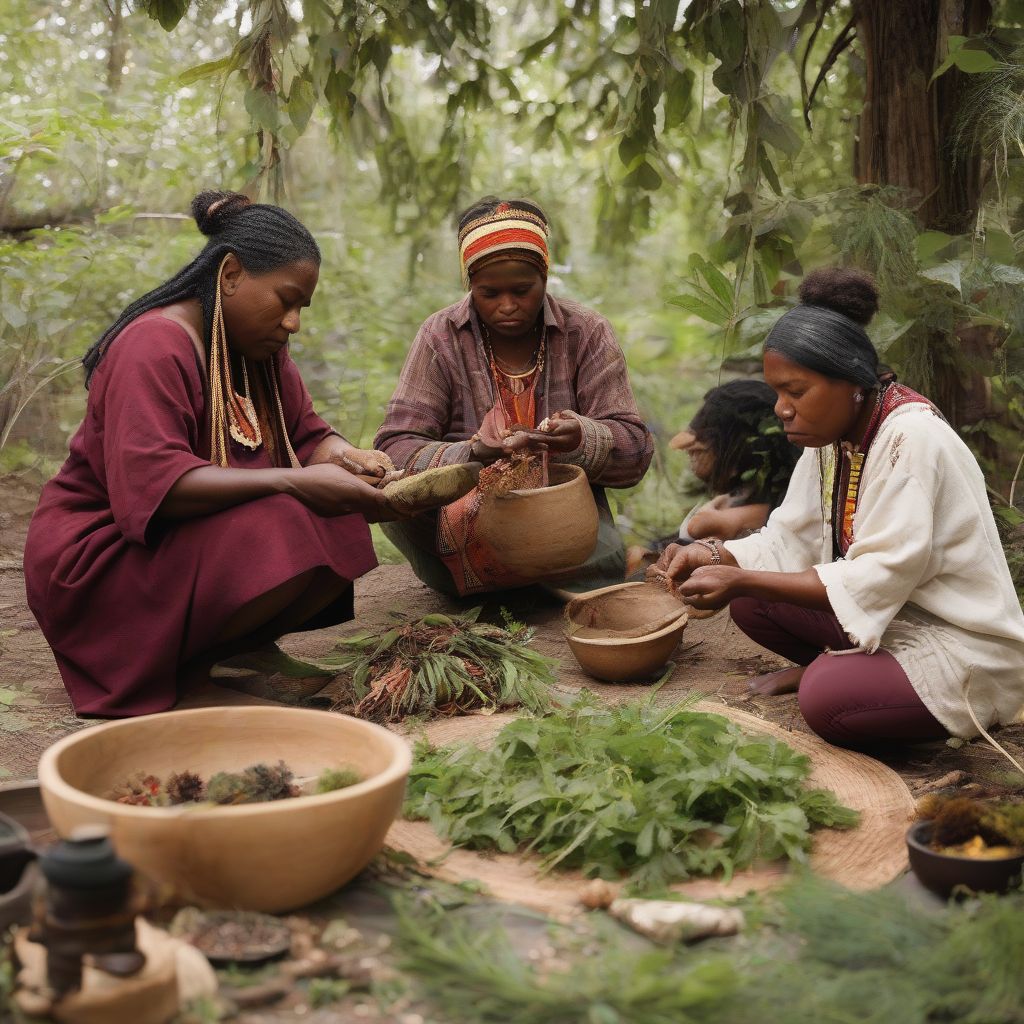For centuries, long before modern medicine emerged, people around the world relied on the healing power of plants. This traditional knowledge of herbal medicine, passed down through generations, forms the foundation of what we know about the therapeutic properties of countless plants. Today, as we see a renewed interest in natural remedies, understanding the role of traditional knowledge in herbal medicine is more important than ever.
A Rich Tapestry of Ancient Wisdom
Traditional knowledge of herbal medicine represents a vast and intricate tapestry woven together by diverse cultures across the globe. In ancient China, herbalists developed sophisticated systems like Traditional Chinese Medicine (TCM), with its emphasis on balance and harmony. Ayurveda, originating in India, views health as a state of equilibrium between mind, body, and spirit, utilizing herbs to restore this balance. Indigenous communities worldwide, from the Amazon rainforest to the Australian outback, possess their own unique traditions, often with a deep spiritual connection to the natural world and the plants within it.
 Herbal Medicine in Indigenous Cultures
Herbal Medicine in Indigenous Cultures
Bridging the Gap: Traditional Knowledge Meets Modern Science
While steeped in tradition and cultural practices, herbal medicine is not merely folklore. It’s a dynamic field where ancient wisdom intersects with modern scientific inquiry. Researchers are increasingly turning to traditional knowledge as a starting point for discovering and developing new drugs.
For example, the discovery of aspirin, one of the most widely used medications worldwide, can be traced back to the use of willow bark by ancient civilizations to relieve pain and fever. This traditional knowledge led scientists to identify the active compound, salicin, in willow bark, which ultimately paved the way for the development of aspirin.
Ensuring Safety and Efficacy: A Collaborative Approach
Despite the proven benefits of many herbal remedies, it’s crucial to acknowledge that “natural” doesn’t always equate to “safe.” Just like conventional medicines, herbs can have potent effects and may interact with other medications.
This is where the role of traditional knowledge becomes even more critical. Experienced herbalists possess a deep understanding of not just the therapeutic properties of plants but also their potential risks and contraindications. They are adept at identifying the appropriate dosage, preparation methods, and potential interactions, ensuring the safe and effective use of herbal remedies.
Empowering Health and Wellness in the Modern World
In a world grappling with the rise of chronic diseases and the limitations of conventional medicine, traditional knowledge in herbal medicine offers a valuable pathway to holistic well-being. Here’s how:
1. A Focus on Prevention
Many traditional systems of medicine emphasize preventive healthcare, focusing on maintaining balance and promoting overall well-being. Herbal remedies are often used not just to treat illness but also to strengthen the body’s natural defenses and prevent disease.
2. Personalized Approach to Health
Traditional healers often take a holistic approach, considering the individual’s physical, emotional, and spiritual well-being when recommending treatments. This personalized approach can be particularly beneficial for chronic conditions where a multifaceted strategy is needed.
3. Sustainable and Accessible Healthcare
For many communities around the world, particularly in remote areas, herbal medicine remains the primary source of healthcare. It provides a sustainable and accessible alternative to conventional medicine, which can be expensive or inaccessible.
Herbal Medicine: FAQs
Let’s address some common questions surrounding herbal medicine:
Is herbal medicine safe?
When used appropriately, many herbal remedies have a long history of safe use. However, it’s crucial to consult with a qualified healthcare professional before using any herbal supplement, especially if you are pregnant, breastfeeding, or taking other medications.
How can I find a qualified herbalist?
Look for practitioners with formal training and credentials from reputable institutions. Your doctor or naturopath may be able to provide referrals.
Can I combine herbal medicine with conventional treatment?
It’s essential to inform your doctor about any herbs or supplements you are taking as they can interact with certain medications.
Embracing the Wisdom of the Past for a Healthier Future
Traditional knowledge in herbal medicine represents a treasure trove of wisdom accumulated over millennia. As we strive to create a healthier future, it’s vital to recognize, respect, and protect this invaluable knowledge. By embracing a collaborative approach that integrates traditional wisdom with modern science, we can unlock the full potential of herbal medicine for the well-being of generations to come.
[amazon bestseller=”herbal medicine”]
Disclaimer: I am an AI chatbot and cannot provide medical advice. This information is for educational purposes only and should not be considered a substitute for professional medical advice. Always consult a qualified healthcare professional for any health concerns or before making any decisions related to your health or treatment.
